Abstract 4/2016
Table of content
Wojciech Tworek – Organization of regional road public transport on the basis of voivodship’ plans of sustainable development of regional public transport
Anna Zalewska – Influence of the EU funds on the development of public transport in Lublin
Joanna Baran, Kamil Palica – Organization and the quality of public transport services in Turkey on the example the Gaziantep province
Roksolana Voronina – Introduction of the “smart city” approach in the Lviv transport system
Jacek Szołtysek – Culture of mobility – polemic
Abstracts
Wojciech Tworek
Organization of regional road public transport on the basis of voivodship’ plans of sustainable development of regional public transport
Abstract: In accordance with the national law of public transport, regional governments (voivodships) have the responsibility to organize regional public transport. Adoption of the plan of sustainable development of regional public transport has been so far one of the main local government tasks. This document contains policy for regional railway and road public transport development for the coming years. The article attempts to describe and compare the most important aspects of the organization of public road transport in the transport policies of all 16 voivodships. The organization of regional public bus transport is diversified, in contrast to the priority role of railway transportation. Moreover, almost all the voivodships are willing to launch road regional public transport at one time, from the beginning of 2017. Particular attention is focused on voivodship transport policies chapters describing communication network which is planned to run service as a public utility, the principles of transportation market guidelines and the way of the operator selection, indirectly presenting the mode of financing the regional bus transport. The announcements of the intention to selection of operator in regional bus public transport have been compared and analyzed. 14 of 16 voivodeships are launching regional bus transportat next year and this service plays mainly complementary role and feeding connection in relation to the functioning of railway transport. Bus transport will be the basic transport service in the areas where rail transport does not operate.
Key words: public road transport, voivodeship’s passenger transport, transport plan, regional bus transport
Anna Zalewska
Influence of the EU funds on the development of public transport in Lublin
Abstract: The influence of EU funds on the development of urban transport in Lublin has been considerable. Due to the EU funds the City of Lublin has gained a lot, for instance, the quality of the transport services provided by the urban public transport has been raised. The Lublin City Commune received funds from two EU programmes: i.e. the Lubelskie Regional Operational Programme for the years 2007 – 2013 and the Operational Programme ‘Development of Eastern Poland’ for the years 2007 – 2013. Under both programmes the biggest investments in Lublin have been made in the fleet (purchase of new trolleybus and bus vehicles), as well as in the infrastructure (trolleybus traction, new bus-stop posts, bus shelters, screens, the repair and construction of bay bus stops). Investment in the bus-stop infrastructure have been beneficial for both passengers and drivers and has increased attractiveness of Lublin. The article outlines the benefits for the Lublin City Commune from the participation in the above-mentioned programmes, and also describes the project in which the Municipal Transport Company – Lublin Sp. z o.o., participated. The Lublin City Commune placed an emphasis first of all on the implementation of the dynamic passenger information system, which operates in every big city in Poland. The displayed information concerning bus lines and their arrivals and departures from the stop are very important for passengers because they make travelling by public transport more convenient. Currently the city is applying for additional EU funds for the development of the dynamic passenger information system. The City also plans to invest in the ecological transport: low – emission buses and in the further expansion of trolleybus transport functioning only in three cities in Poland. Urban transport in Lublin has been changed significantly in the last years and now it may compete with other large systems in Poland.
Key words: public transport, EU funds, EU projects, bus-stop infrastructure, passenger information system
Joanna Baran, Kamil Palica
Organization and the quality of public transport services in Turkey on the example the Gaziantep provinceAbstract: The article presents the urban transport system in Gaziantep including bus and rail transport. The results of survey carried out in 2015 among 210 users of urban transport are demonstrated in the article. The study has identified passengers preferences and satisfaction with public transport based on an assessment of individual quality attributes, declared directly by passengers. Passengers indicated the following key features of urban transport: the frequency of vehicles and travel expenses (ticket prices). The study indicates that the inhabitants of Gaziantep are satisfied with the level of public services provided by the public transport. In reference to the satisfaction from the features of public transport, the highest rating among surveyed passengers of Gaziantep is given to the directness of journey (average rating 3.07) and the transport network accessibility (average score 2.99). In the opinion of passengers the weakest transport features are: mainly poorly developed passenger information system and bad condition of the public transport fleet.
Key words: urban transport, transport service, passenger
Roksolana Voronina
Introduction of the “smart city” approach in the Lviv transport system
Abstract: The article is dedicated to the analysis of application of the “smart city” approach in the Lviv transport system. The definition of “smart city” and its main features are presented. The article includes the analysis of major problems in Lviv transport system and provides suggestions for the development of this system on the way to the smart city approach. Lack of coordination between the structures in Lviv transport system is one of the key issues. Article presents the results of “Smart city Lviv” project held in 2015 in the sphere of transport system. “Smart” people in Lviv increase the potential of the Lviv as a smart city. Sociological research conducted in 2013 helped to distinguish the main issues of people’s travels in the city and the assessment of the quality of urban public transport. The positive aspects and trends in the development of Lviv transport system and innovative solutions are presented in the article. Traffic management system with priority for public transport in Lviv is described. It leads to better traffic management, increase of the quality of public transport and safety. Proposals for the development of public transport and promoting the use of bicycles for travel have been given as the result of implemented of the “Smart city Lviv” project. Some of them have been already implemented.
Keywords: smart city, Lviv transport system, public transport, traffic management system
Jacek Szołtysek
Culture of mobility – polemic
Abstract: The article is a polemic with the A. Ciastoń-Ciulkin statement referring to the definition of the concept of the “culture of mobility” presented in the article: “New culture of mobility – substance and definition” published in the “Urban and Regional Transport”, 2016, No 1, p.3-9. The article refers also to the definition of this concept proposed by R. Janecki: “New culture of mobility as a direction for development of urban and regional transport in the Silesian voivodship”, published in the Journal of Economics and Management 143 (2013) by the University of Economics in Katowice.
Key words: culture of mobility, sustainable mobility
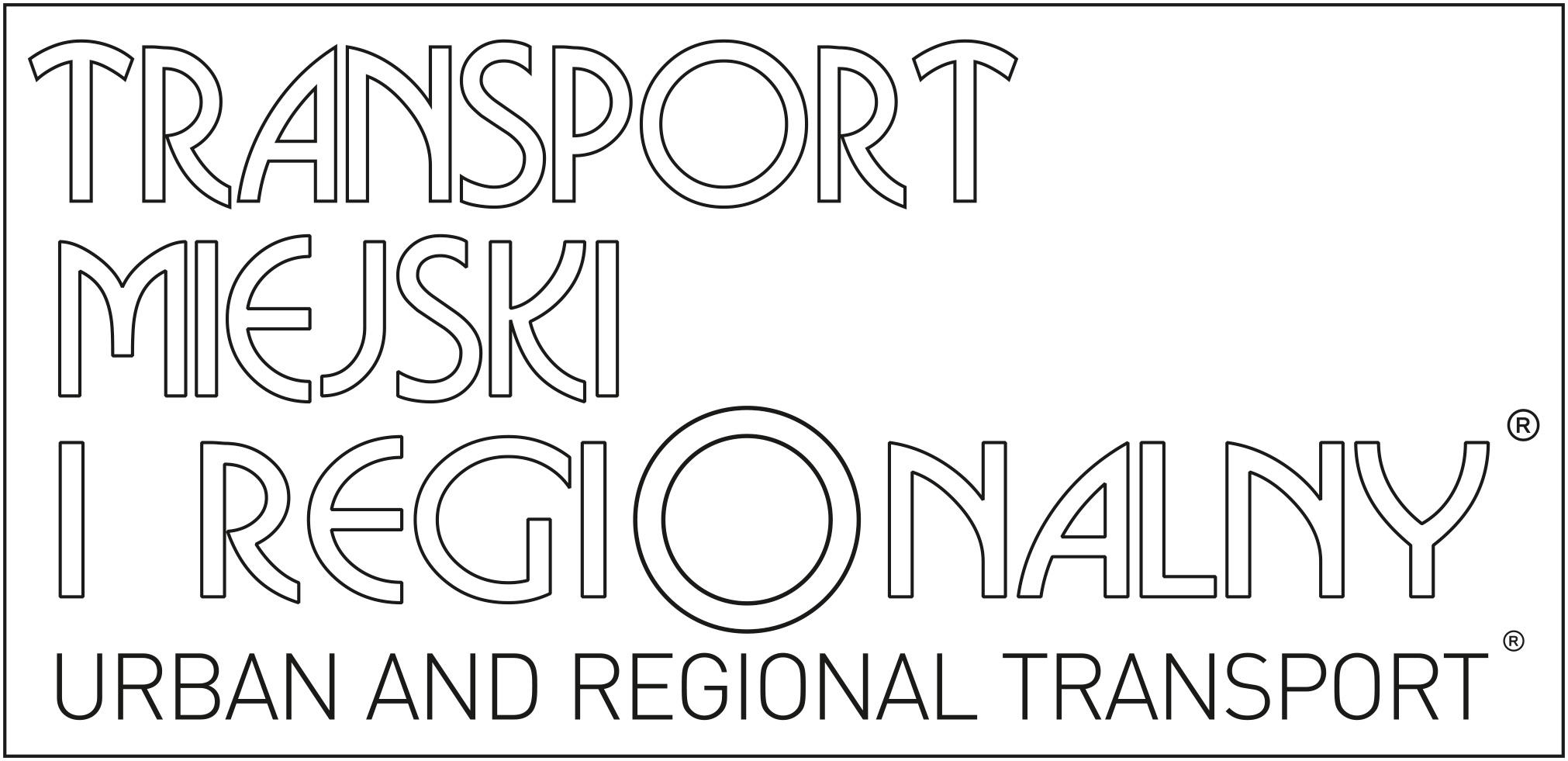
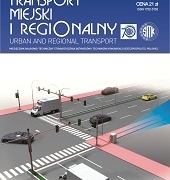 SITK RP
SITK RP 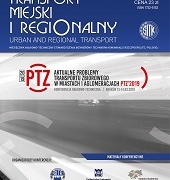
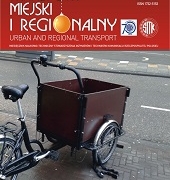
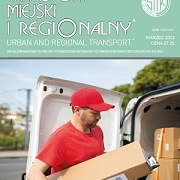 SITKRP
SITKRP 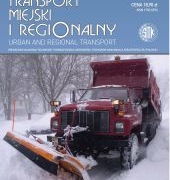 SITK RP
SITK RP 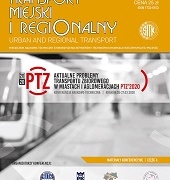

 SITK RP
SITK RP SITK RP
SITK RP